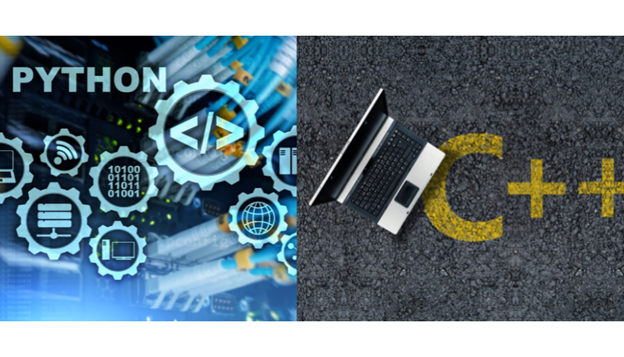Which Language should I learn first: Python or C++?
Oct 30, 2022
iCrowdMarketing powered by iCrowdNewswire

Programming is a lifelong pursuit, and it is a new path for new opportunities. That's why the question of which programming language you should learn first often comes up. Should you learn Python or C++? And what language is the best for a start?
Both languages offer something that makes them ideal for different types of programmers. If you're an analytical thinker who likes to understand what's going on under the hood of your programs, then learning Python is probably a great idea.
On the other hand, if you like working with raw code to build things from scratch, learning C++ will give you what you need. Which one would be best for you depends on your interests and your current level of programming experience.
So let’s see how we can make a decision here.
Python vs. C++: What's the Difference?
Python and C++ are high-level programming languages that are easy to pick up, even if you're a beginner.
Python is an increasingly popular language for beginners, while experienced coders may still find it useful as a tool to prototype projects quickly or explore a new problem space. Python is free and open source, so you can look inside its code and learn from its design decisions.
It's also highly extensible, so you can write programs that take advantage of other people's code. Python has a small but passionate community of practitioners, and its use is increasing, so there are plenty of resources online to help you get started.
C++ offers a bit more power than Python, but it's also somewhat challenging to learn. However, once you've got that down, you'll have a language which is capable of doing almost everything. It's a great choice if you want to build things that function in a number of different environments.
It's perfect for building programs that are used by a variety of end users and that are designed to run on a variety of hardware.
Why Learn Python?
Python is an easy language to master. It's a high-level language that's intended to be very friendly to write and read. To start coding with Python, you don't need to know too much about computer architecture.
Most Python tutorials use a very straightforward language, so it's easy to get started, even if you need to brush up on your basic math skills. Generating password in Python is also very easy, which makes it more useful for a beginner.
Python also encourages an approach to programming that's both natural and useful. It helps you think through the big picture of your project.
As you work through an implementation, you'll end up with a better understanding of what your software does and why. This can help you avoid a whole bunch of problems down the road.
Python is great for building scalable, robust software. It's easy to add features to existing code, and you can extend it to meet changing needs.
This language integrates well with other open-source software and with existing systems. It is also easy to read file in C++. This makes it easy to build scalable, flexible systems that are also compatible with a lot of other code.
Why Learn C++?
C++ is a programming language that allows you to build robust, scalable software that's designed to stand the test of time. You can build systems that work with other codes, making it great for building systems that work with other services on the internet.
This is also a powerful language that's also easy to learn. It's a great option for serious programmers who want to build robust, scalable software that's designed to stand the test of time. It's great for building systems that work with other code and for working with existing open-source software.
C++ for Professional Programmers
C++ is a powerful, statically typed language that's great for building large, scalable software systems. That's because C++ is a compiled language that means you can write code that runs as quickly as possible—a performance advantage when you're building a product that people rely on.
It is also a traditional language, which means that you have to think about memory management and how to avoid the common errors of accessing memory that's not meant to be accessed. It also means that you'll have to think about binary compatibility, which is a fancy way of saying that older software will be able to run on newer computer hardware.
C++ is a big leap from Python, so a programmer with a background in Python may find it difficult to transition to C++. That said, C++ has its advantages, and programmers who've spent time learning it may find it a more comfortable fit.
Which Language Should You Learn First?
Python is easy to pick up, even as a beginner. That's one of its biggest advantages since it's a relatively lightweight language that's easy to learn.
C++, on the other hand, is best suited for programmers who've built a solid Python foundation and want to take things to the next level. Both languages can be tough to get a firm grip on if you come from a non-software background. That's why picking one can be useful.
You don't have to commit to learning one language for the rest of your life, and you can always switch to another if you find it too challenging.
Conclusion
Python is an excellent choice for beginners, but if you're interested in a more challenging challenge, C++ is a great choice, so if you don't know what to learn first, better to refer to this guide first to get a brief idea for your choice.